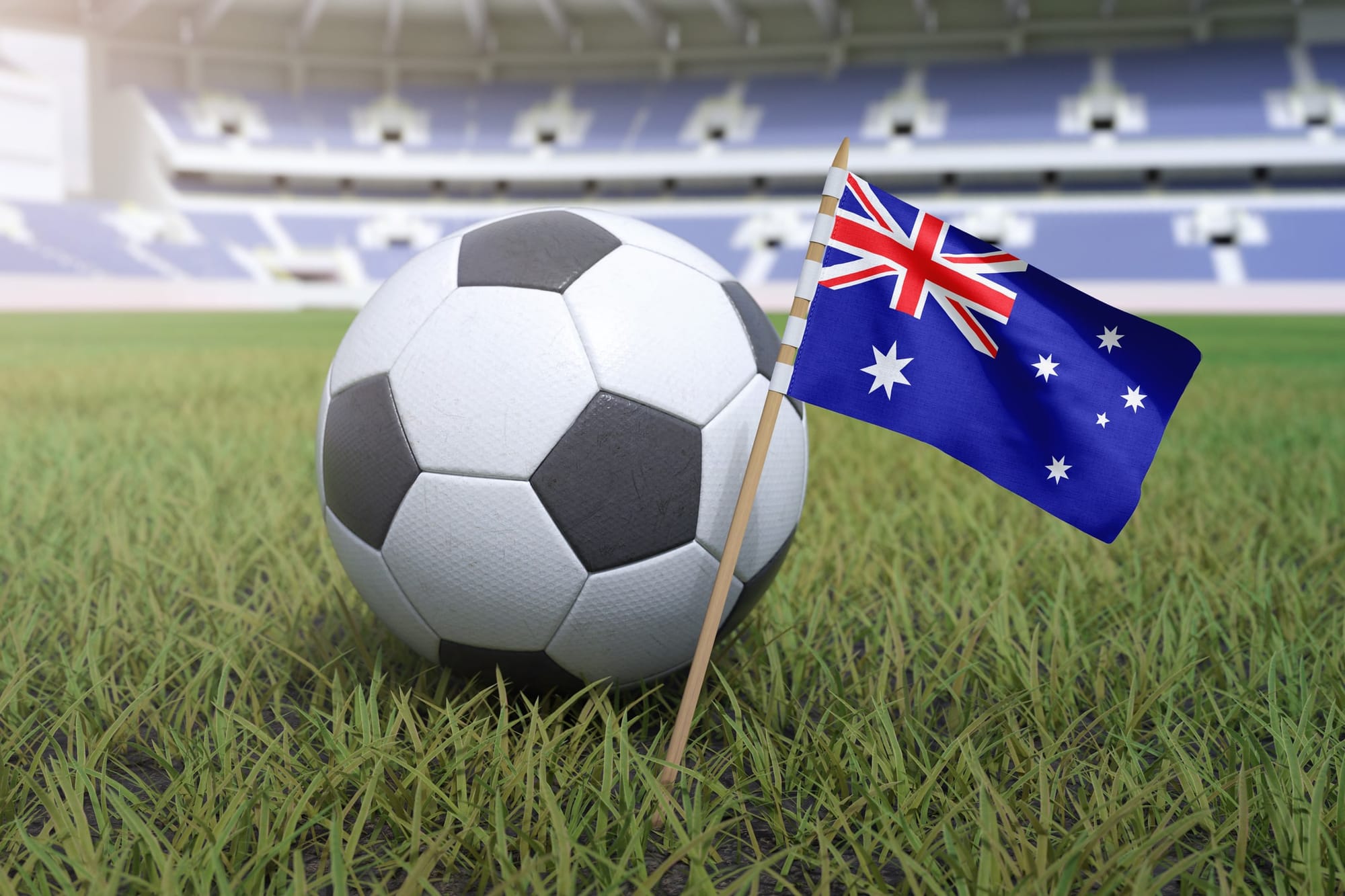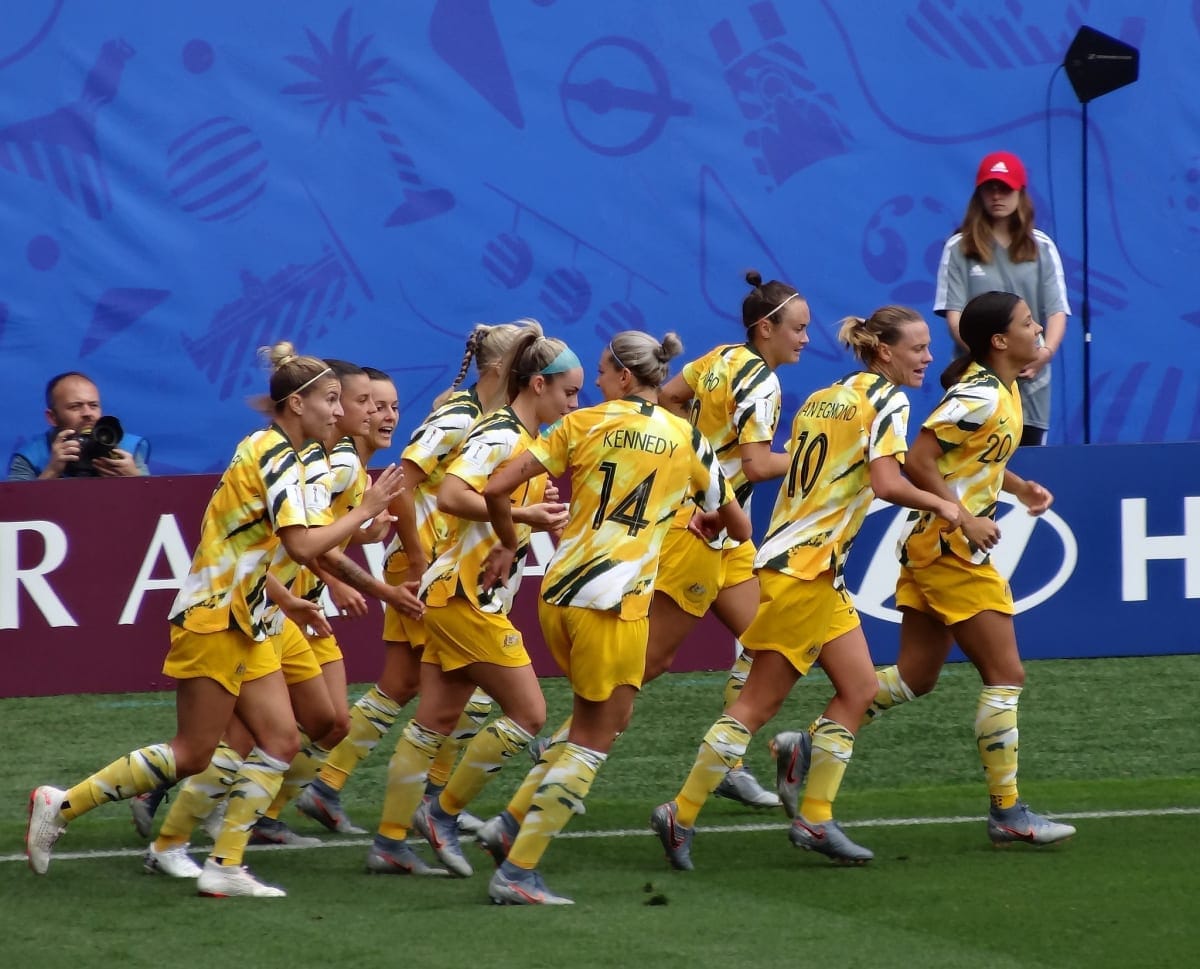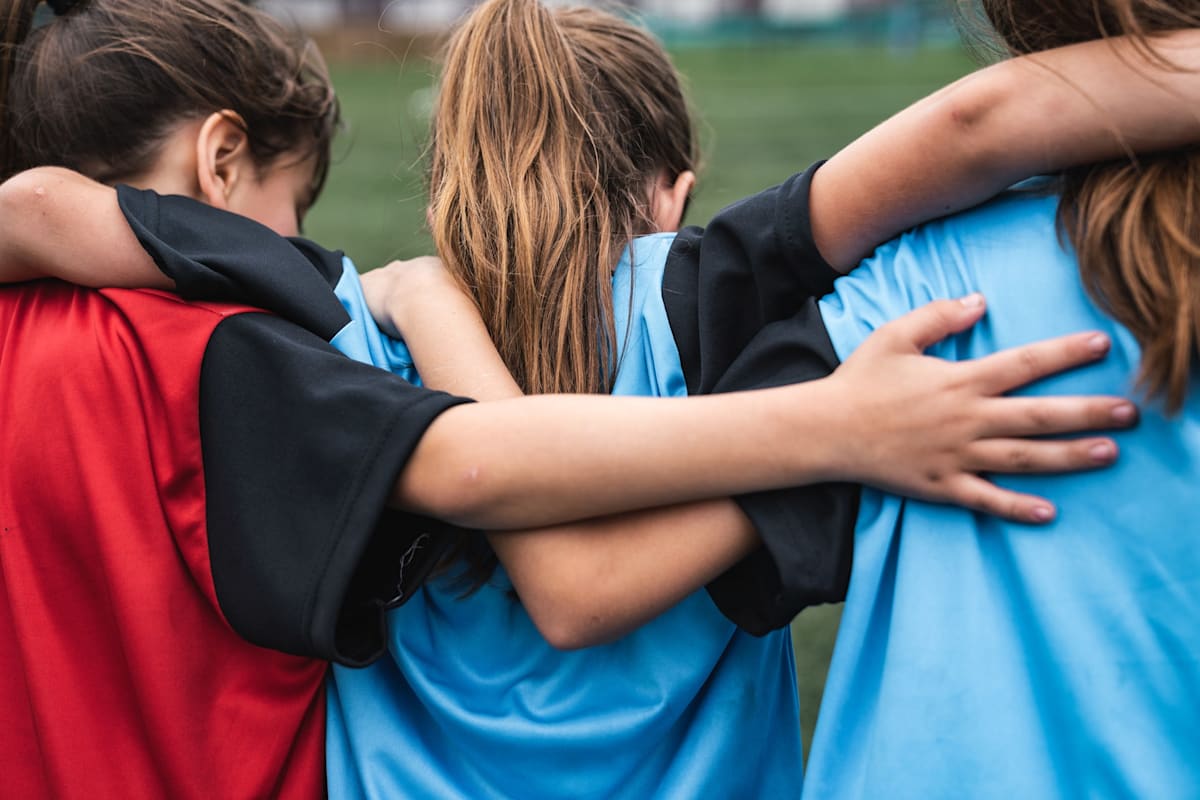
The 2023 FIFA Women’s World Cup, hosted by Australia and Aotearoa New Zealand, is a landmark moment in the history of Australasian and global women’s sport.
The month-long tournament event is on track to be the most-attended standalone international women’s sporting event to date, with ticket sales surpassing one million seats, and continuing to climb.
A global television audience of two billion people is expected to tune in to watch 32 teams from around the globe, featuring star players such as Spain’s Alexia Putellas, the United States’ Alex Morgan, Brazil’s Marta, and Australia’s Sam Kerr.
This is an almost unimaginable scenario when compared to much of the 20th century.
In a ban that lasted 50 years, the UK’s Football Association (FA) denied access for women’s teams to FA club grounds and referees in 1921. Australian football administrators followed the FA’s retrograde lead, claiming that the game was “medically inappropriate” for women to play.
Read more: The World Cup legacy: How can we create sustainable participation for girls and women’s football?
Determination and resourcefulness characterise the many players, coaches and officials who then worked tirelessly to kick-start women’s football in the 1970s and 1980s.
In 1988, members of the Australian team that competed at FIFA’s first trial attempt at a women’s World Cup in China relied on a combination of fundraising and paying their own way in order to represent their country.
Players such as Moya Dodd, Julie Murray and Julie Dolan received limited media attention as they played for their country, despite claiming an upset win against Brazil.
Even with their efforts, it took another eight years for an Australian Women’s National Soccer League to commence, which followed Australia’s qualification for the 1995 World Cup (a naming competition hosted by SBS television also created the moniker of “the Matildas” in 1995).
Almost a quarter of a century later, the Matildas are set to play a World Cup opener against the Republic of Ireland at Stadium Australia in Sydney. The game has been moved from the Sydney Football Stadium to the larger 83,000-seat venue to cater for the “unprecedented” demand to watch the Australian women’s team in action.

Challenging assumptions and norms
The attention and excitement surrounding the women’s World Cup provides benefits to both sport and society. In the face of persistent gender inequities in Australia, the Matildas are directly challenging assumptions and norms in one of the most pervasively masculine and heteronormative domains in society – sport.
Women have fought hard to make this moment possible. A semblance of a (highly uneven) professional pathway for women and girls is inspiring a new generation of participants.
In a striking contrast with the relative obscurity of the women’s game in the 1980s and 1990s, market research suggests the Matildas are now Australia’s fourth-most-popular national sporting team, sitting behind only the men’s test cricket team, the Socceroos, and rugby league’s Kangaroos.
Players such as Kyah Simon, Steph Catley, Mackenzie Arnold, Hayley Rasso and Ellie Carpenter are fast becoming household names.
Optimistic predictions suggest these gains will accelerate further as a legacy of the World Cup.
Analysis of the impact of the UEFA Women’s Euro 2022 tournament hosted in England suggests that watching games markedly improved spectator perceptions of women’s football.
While participation statistics are plateauing across many sports in Australia, consistent increases in women and girls’ participation in football are reported over the past five years.
Seeking to build on this growth and the momentum of hosting the World Cup, Football Federation Australia has set the bold and welcome objective of 50:50 gender parity in player participation by 2027.
With growth comes unavoidable risks
There’s much to be celebrated on the eve of this World Cup. Yet, with progress comes unavoidable risks and challenges. Success means women’s football is being drawn into the pathologies of global elite sport and mega-events, including scandal, media-fuelled hyper-commodification, and sportswashing.
For example, FIFA’s deservedly maligned reputation was again on display when it announced Visit Saudi (Saudi Arabia’s state tourism authority) as a 2023 World Cup sponsor, before reversing course.
We’ve also previously seen excitement about the possibilities of advancement in women’s sport, but the subsequent realities often fall short of the rhetoric.
Growth in participation and interest doesn’t automatically lead to adequate pathways, support and livelihoods for women as athletes, coaches, administrators and leaders. It’s interesting to note, for instance, that only 12 of the 32 head coaches at the 2023 World Cup identify as women.
The question of who benefits from the FIFA-led corporate spectacle on display in Australia and Aotearoa New Zealand is being asked by many teams and players, including the Matildas.
At last count, seven of the teams competing are in dispute with their national associations over pay and conditions. It’s also easy to forget at this moment that the Australian women’s team went on strike over pay in 2015.

Heeding the AFLW lessons
Lessons from the AFLW also illustrate how quickly momentum regarding women’s participation can fall away.
After significant hype and interest around the initiation of the league in 2017, players are now campaigning for pay and conditions that will enable them to be full-time professional athletes like their AFLM counterparts. Yet, they’re met with resistance that questions the value and worth of the women’s game in the light of falling television audiences.
Women’s football has come a long way in the past 50 years, and the World Cup provides a remarkable platform to elevate the value of women’s participation and representation on a national and global stage.
However, it will take significant and ongoing investment from those who govern football – including taking the value of women’s participation seriously at all levels – if the legacy ambitions of the FIFA 2023 World Cup are to be translated into meaningful change for women.





